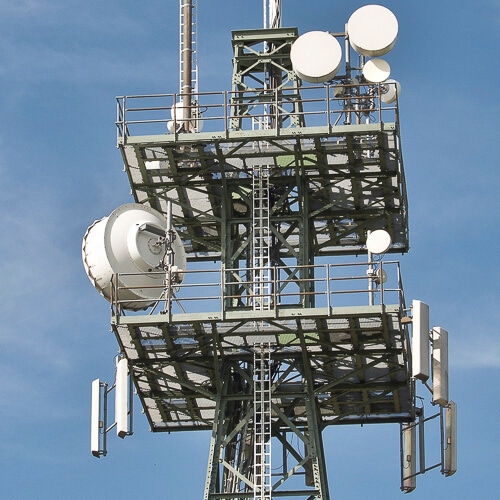Tower sales to increase with Malaysian mast-off
Malaysia is joining the vogue for selling off mobile towers, as U Mobile looks to flog its collection for $120 million.

If 2020 will be remembered for COVID-19, 2021 will be the year when all the telcos sold their towers.
The mast-off now looks set to extend to Malaysia, with U Mobile now pondering selling its towers for $120 million.
Those who might be interested include Edgepoint Capital Advisors and Edotco Group.
Figure 1:  Rinse and repeat: Malaysia's U Mobile is the latest operator to look at cashing in its tower infrastructure for a short term boost to the books.
Rinse and repeat: Malaysia's U Mobile is the latest operator to look at cashing in its tower infrastructure for a short term boost to the books.
(Source: Pixabay)
Like any self-respecting telco, U Mobile is looking to muscle up some extra resources as it spends big on 5G, which it aims to roll out in Kuala Lumpur and Putrajaya by the end of 2021, and nationally by 2023.
Meanwhile, U Mobile, which is based in Kuala Lumpur and is the country's fourth-biggest mobile operator, is also tidying up its books ahead of a planned IPO where it hopes to raise about $500 million.
U Mobile has over 7 million subscribers, and owns 1,611 wireless towers. Shareholders include Straits Mobile Investments from neighboring Singapore, and local tycoon Vincent Tan.
The news comes weeks after Dutch telco VEON agreed to divest 15,400 mobile towers in Russia for a princely $970 million (70.65 billion rubles).
The company also signed a collaboration agreement this month to use fiber broadband from Allo Technology, a subsidiary of Tenaga Nasional.
This let U Mobile launch its first fiber offering, in 100Mbit/s, 500Mbit/s, and 1Gbit/s flavors, as a pilot this month in selected residential areas in Melaka, Cyberjaya, Perak and Kedah.
As an extra inducement, and with an eye towards a difficult economic environment, it offered customers 50% off the fiber plan for two years, and the first month for free.
Enter Ericsson
Meanwhile, Ericsson entered a $2.6 billion decade-long partnership yesterday with state-owned Digital Nasional Berhad to deliver a nationwide 5G wholesale network for all of Malaysia.
Malaysia and Brunei are the only two countries in Asia so far that have chosen to form a nationalized single wholesale network, to own tower, backhaul and spectrum assets, and sell access on a wholesale basis to retail operators.
DNB is hoping that adopting an end-to-end strategy using Ericsson kit, including radios, spectrum sharing and support systems, will help it meet its target of getting 5G to 80% of Malaysia's population by 2024.
Malaysia formed the state-owned special-purpose vehicle Digital Nasional Berhad in February, after the government of Prime Minister Muhyiddin Yassin came under fire for bungling the allocation of its 5G spectrum.
The spectrum was first awarded without an open tender to Altel, which is controlled by the politically well-connected businessman Syed Mokhtar.
When this decision attracted a great deal of criticism, Yassin then voided the allocation and announced the spectrum would be nationalized instead.
The GSMA warned afterwards that "Malaysian operators have already made significant infrastructure investments", and while the country has a "thriving mobile economy and a growing digital sector", the single wholesale network model "risks that".
There was also absence of evidence of "clear market failure to justify the proposed intervention in the 5G market," said the GSMA, which represents mobile operators.
Pay it forward
In other Malaysian telecoms news, the Malaysian and Singaporean central banks announced on Monday that people in the two countries by the last quarter of 2022 will be able to make real-time payments by just using a mobile number.
Interested in Asia? Check out our dedicated content channel here on Light Reading.
The tie-up is expected to make it easier for travelers between the two countries – who numbered 12 million a year, before the coronavirus kicked in – to make payments, and spend money in each other's jurisdictions.
Malaysia also announced in recent weeks a similar tie-up with the Reserve Bank of India to link Malaysia's PayNow with India's Unified Payments Interface for real-time payments between the two countries by July 2022.
Related posts:
— Pádraig Belton, contributing editor special to Light Reading
About the Author(s)
You May Also Like












